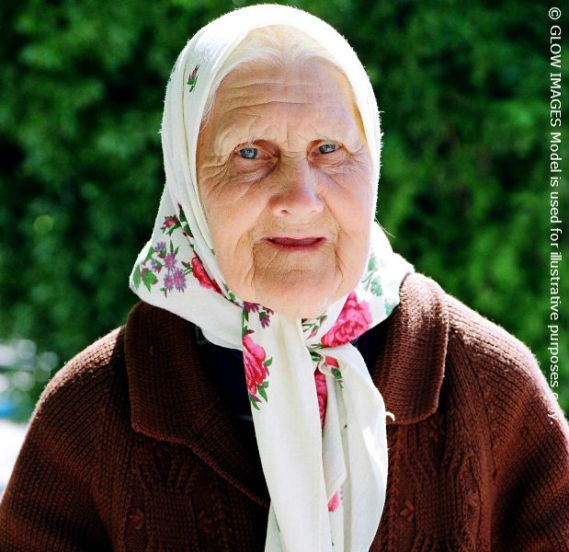It was one of those moments when you recall where you were as the news broke.
Everyone's worst nightmare was being realized as a catastrophic accident in a nuclear reactor launched a plume of highly radioactive fallout. The fire that raged at the Chernobyl power plant for four days released 400 times as much radiation as the bomb dropped on Hiroshima. And it paid no heed to national boundaries as it drifted across the Soviet Union and over large parts of Europe.
But the most immediate impact of the 1986 Chernobyl disaster was on the lives of over 160,000 locals evacuated from their homes to live safely outside of the so-called "exclusion zone."
Yet a group of brave residents decided nothing would keep them from the place they called home. Instead, they dug beneath the barbed wire and returned to their ancestors' homes inside the zone. One woman summed up her conviction this way: "I am more afraid of starvation than radiation." These were people who had survived Stalin's dictatorship and the hardships of communism and war.
Filmmakers Holly Morris and Anne Bogart documented the story of the 200 remaining "self-settlers" made up of mostly Russian grandmothers in "The Babushkas of Chernobyl." The movie shares a remarkable window into the lives of these women who have not only survived off of land that radiation scientists labeled uninhabitable and extremely toxic, but appear to have thrived on doing so.
Today, thirty years after the nuclear disaster, the Babushkas have outlived by a decade their counterparts who fled to the safe zone miles away to live in high rise apartment complexes.
This past fall at the TedMed conference, I had the opportunity to listen to Holly Morris share her insights on making the film. She said that no one can truly explain why these women are alive and doing well today, offering instead what holds profound truth: "They see their lives and the risks they run decidedly differently. . . Home and community are forces that rival even radiation."
The spirit and existence of the babushkas, she said, leave us with questions about the transformative nature of home.
As I asked myself those questions, I reasoned that home and community must have an important connection to health. Home, in its best expression, includes such life-affirming qualities as joy, companionship, love, support, warmth, nourishment, comfort, peace, purpose, safety, protection, beauty--and the list goes on. Instead of being merely bricks and mortar, grass and ground, couldn't home be more of a state of consciousness?
As I see it, the women of Chernobyl were taking a stand for their health, if not physically then at least mentally, when they returned to what was one of the most dangerous places they could be, from a purely scientific perspective. But while scientists measured dangerous radiation levels in the air, ground and surrounding lakes, they couldn't measure the level of protection, care, and peace that the love of home afforded these women.
But another woman, from another century, would have understood.
"Pure humanity, friendship, home, the interchange of love, bring to earth a foretaste of heaven," wrote revolutionary spiritual author and teacher, Mary Baker Eddy. "They unite terrestrial and celestial joys, and crown them with blessings infinite."
She would know, having herself moved home 68 times, including 27 times in the span of just one decade.
As a widow and young mother in the mid 19th century, Eddy eventually rose from abject poverty to becoming one of the most influential women of her day, based on her groundbreaking ideas about spirituality and health. She moved from humble quarters to larger estates later in her life, but never lost sight of the mental nature of home. She wrote that "Our surety is in our confidence that we are indeed dwellers in Truth and Love, man's eternal mansion."
If home is indeed our consciousness of spiritual belonging in Truth and Love - names Eddy used to describe God - wouldn't we all do well to focus our energies on cherishing home in our lives, wherever and whatever form it may take? Far from being limited to a particular parcel of land, our home is the way we approach our lives and respond to the peaks and valleys life's trajectory inevitably includes.
So if change requires that we must leave our current address, we can be assured that the qualities we associate with home will travel with us and continue to nurture our well-being.
As the Chernobyl babushkas have surely proved: "Home is not a place, but a power." (Mary Baker Eddy)

